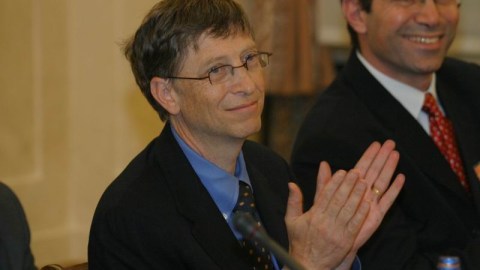The Billionaires Can Save Us? So Where Are They?

Not unexpectedly, one of the main industries hurt by the precipitous economic slump of the past few years has been philanthropy. In fact, the Center on Philanthropy at Indiana University recently found that during the second half of 2008, charitable gifts of $1 million or more declined by more than one third from the year before. But the billionaires can help fill the gap, right? Sure, but will they?
The concept of the billionaire philanthropist may have never been more en vogue. NBC even introduced a new series earlier this year, the Philanthropist, which tells the story of Teddy Rist, a renegade billionaire on a mission to make the world a better place. While the show inspired a spirited NBC philanthropy site and the show looks to be returning, reviews haven’t been kind. A more accurate look at philanthropy may be on the upcoming Canadian comedy, the Foundation. But in the real world, there are some billionaires, most of them markedly less charismatic than the fictional Teddy Rist, who have done their part to fill the philanthropic gap.
According to Forbes’ recent Billion-Dollar Donors list, 14 billionaires stepped up to the plate, including Bill Gates, George Soros, Eli Broad, and Michael Bloomberg. With each contributing at least $1 billion, the list’s total contributions total more than $62.5 billion. But the real news may be which billionaires are not on the list. You see, there are more than 14 billionaires on the planet. In fact, there are 793, which makes this list of 14 seem downright paltry.
For what it’s worth, Bill Gates, who led the donors list with $28 billion in philanthropic donations, is trying to change attitudes when it comes to billionaires and charity. Gates has gone on the record saying that billionaires should give away the majority of their fortunes and not leave too much for their children. The legacy of that progressive worldview is the Bill and Melinda Gates Foundation.
The rich are still doing interesting things with their money- space tourism, for example. But with 10 Americans on the list of 14, there may be a new American perspective when it comes to billions and how to spend them. Ok, we’re probably not looking at any sort of philanthropic sea change, but it could be interesting to see how the list of 14 may potentially reshape the philanthropic obligations of the world’s richest people.





